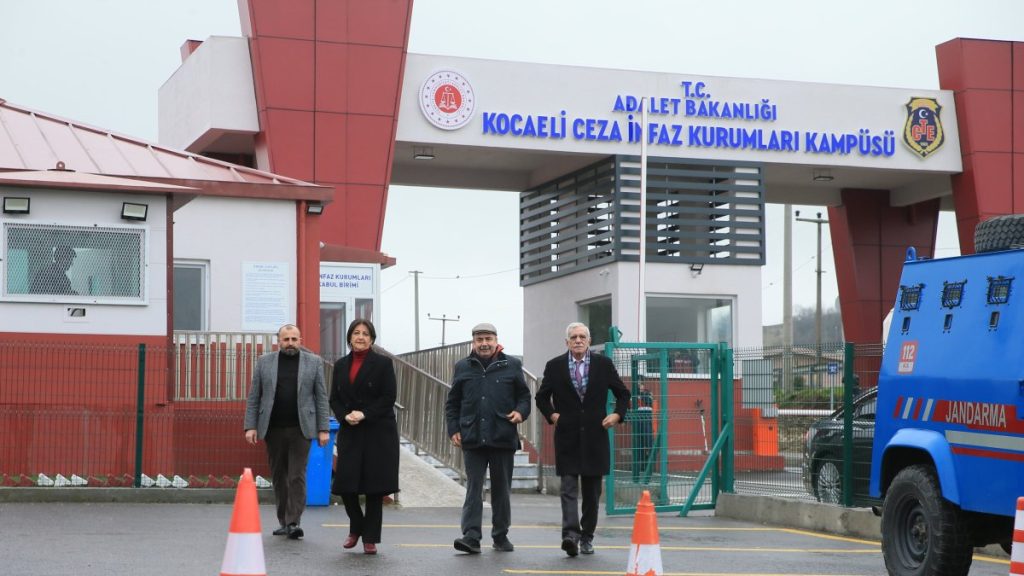Sırrı Süreyya Önder and Pervin Buldan, who formed a delegation as part of the ambitious terror-free Türkiye initiative, made their second visit to Abdullah Öcalan, the jailed leader of the PKK terrorist group.
Lawmakers from the Peoples’ Equality and Democracy Party (DEM Party), which is known for its links to the group, traveled on Wednesday to Imralı, a Marmara Sea island where Öcalan is incarcerated. Öcalan, who already expressed support for the initiative, is expected to take action to further advance it, namely by calling the PKK to lay down arms after DEM’s second visit.
Önder and Buldan, accompanied by veteran DEM Party politician Ahmet Türk, conveyed Öcalan’s message to political parties after the first visit. They last met Selahattin Demirtaş and Figen Yüksekdağ, former co-chairs of the Peoples’ Democratic Party (HDP), a predecessor of the DEM Party, who were imprisoned for support to the PKK.
The DEM Party became a “broker” in the initiative after Nationalist Movement Party (MHP) leader Devlet Bahçeli last year urged Öcalan to call on the PKK to lay down arms through a speech at a parliamentary group meeting of the party in the near future.
Bahçeli’s historic call on Oct. 22 is viewed as the first step of the new initiative that gained its name through subsequent statements of Bahçeli and President Recep Tayyip Erdoğan, who endorsed the plan. His call involves removing Öcalan from solitary confinement at Imralı Island prison, at least temporarily.
Last Friday, Buldan and Önder issued an optimistic statement regarding the progress of the initiative. They said that all their meetings, including those with representatives of political parties, “went positively on a sincere and promising level,” noting that all political parties and their leaders have backed the initiative by principle. With that, however, the parties have had various concerns and suggestions, according to their statement, concentrating on the transparency of the process and basing it in Parliament.
There has been a mixed reaction among politicians and analysts to suggestions of the new initiative. Some described it as a historic opportunity, while others strongly opposed any perceived notion of leniency toward Öcalan or the PKK. However, the DEM Party said its delegation has observed that all parties “share a common desire and willpower to overcome the conflicting and tense process deriving from the Kurdish problem.” Similarly, the DEM Party said a parallel issue is that what they called “the peace process” “should be instrumental in general democratization and the expansion of democratic politics.” “We are sure that everyone, every segment of society, has expectations and hopes regarding this process, as well as concerns, sensitivities and questions,” the party said.
“Reinforcing Turkish-Kurdish brotherhood is a historic responsibility and is a matter of importance and emergency for all peoples,” Öcalan said in his first statements quoted by the DEM Party after the December visit.


